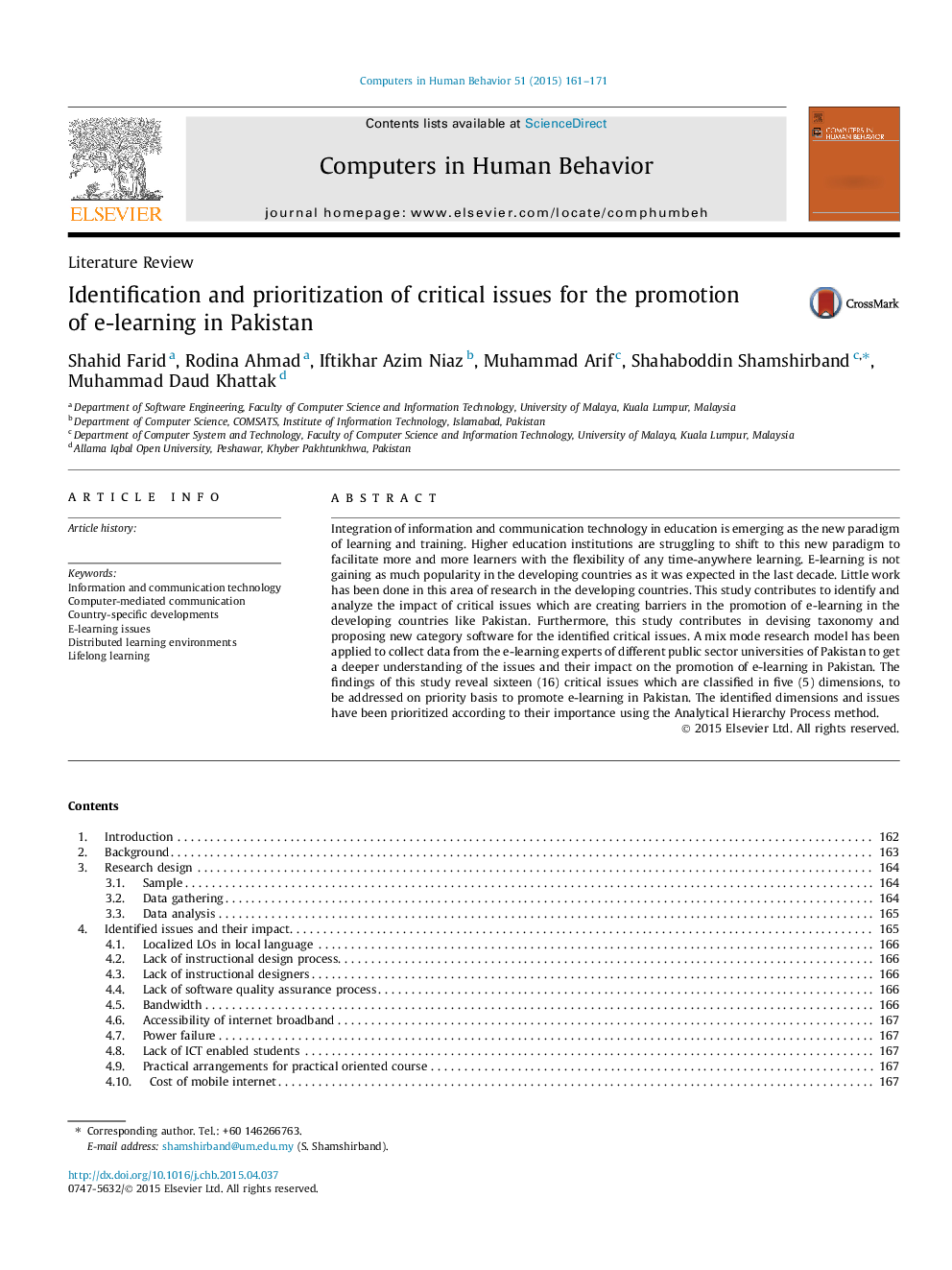| Article ID | Journal | Published Year | Pages | File Type |
|---|---|---|---|---|
| 10312532 | Computers in Human Behavior | 2015 | 11 Pages |
Abstract
Integration of information and communication technology in education is emerging as the new paradigm of learning and training. Higher education institutions are struggling to shift to this new paradigm to facilitate more and more learners with the flexibility of any time-anywhere learning. E-learning is not gaining as much popularity in the developing countries as it was expected in the last decade. Little work has been done in this area of research in the developing countries. This study contributes to identify and analyze the impact of critical issues which are creating barriers in the promotion of e-learning in the developing countries like Pakistan. Furthermore, this study contributes in devising taxonomy and proposing new category software for the identified critical issues. A mix mode research model has been applied to collect data from the e-learning experts of different public sector universities of Pakistan to get a deeper understanding of the issues and their impact on the promotion of e-learning in Pakistan. The findings of this study reveal sixteen (16) critical issues which are classified in five (5) dimensions, to be addressed on priority basis to promote e-learning in Pakistan. The identified dimensions and issues have been prioritized according to their importance using the Analytical Hierarchy Process method.
Keywords
Related Topics
Physical Sciences and Engineering
Computer Science
Computer Science Applications
Authors
Shahid Farid, Rodina Ahmad, Iftikhar Azim Niaz, Muhammad Arif, Shahaboddin Shamshirband, Muhammad Daud Khattak,
